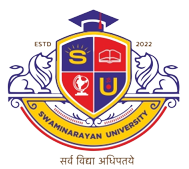

 About Ayurveda
About Ayurveda
Programs, including BAMS (Bachelor of Ayurvedic Medicine and Surgery) and Post Graduate MD/MS degrees, are structured to provide a deep understanding of Ayurvedic principles, diagnosis, medical techniques, panchakarma, surgery and modern medicine.
Clinical rotation, herbal formulation laboratories and live case-based learning students understand effective treatment schemes, practical skills required for patient counselling and integrated health distribution.
It is emphasised to prepare students to handle chronic and lifestyle disorders through general medical, dietary and personal means.

Ayurveda deals with the basic causes, not just symptoms-toky's lifestyle and stress-related diseases make it very relevant.
Demand for Ayurvedic doctors is increasing globally, especially in wellness tourism, panchakarma clinics, natural product industry and integrated hospitals.
The field provides satisfaction with the treatment with temporary treatments, herbs and non-invasive treatments in individual care.
Career path in Ayurveda includes clinical practice, research, education, pharmacy, wellness contractors and authority services.
 Course(s) Details
Course(s) Details
Swaminarayan University offers students advanced, easy-to-understand, comprehensive, student-friendly study material. This material can be accessed online.
Practical training in Ayurvedic hospitals, panchakarma centers and settings for health services in the countryside.
Research opportunities in herbal medicine formulation, integrative health practices and treatment of chronic illness.
Clinical practice, teaching, Ayurvedic Pharma, Wellness Retreat, Career Opportunities in Public Health Services and Ayush.
Fee Regulation for 50% Seats: As per NMC guidelines, 50% of seats in private medical colleges and deemed universities should have fees at par with government medical colleges in the respective state. This regulation aims to make medical education more affordable and is applicable to students admitted under government quota seats.
Implementation: The benefit of this fee structure is first available to candidates who have availed government quota seats. If the government quota seats are less than 50% of total sanctioned seats, the remaining candidates would avail benefits of the fee equivalent to the government medical college fees, based purely on merit.
1) Learn during Vedya and MD experts with many years of ayurvedic clinical and teaching experience.
2) In exposure to ancient Ayurvedic texts (samhitas) with modern interpretation for practical applications.
3) Panchakarma therapy training using real patients in institutional hospitals and welfare units.
4) Herb's identification, formulation and preparation technology are taught in Herbal Garden and Rushla (pharmacy laboratories).
5) General development in both diagnosis and dosha-based treatment, dietary plan and lifestyle improvement.
6) Interdisciplinary learning with modern anatomy, physiology, pharmacology and clinical equipment.
7) Higher education, state practice license (via CCIM) and route for private clinical layout.
8) Like, Ayush and international wellness bodies are part of a treatment tradition.